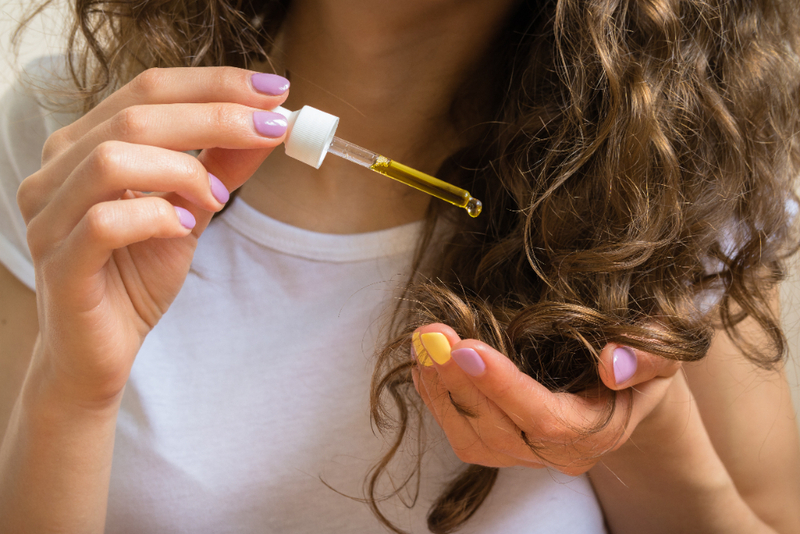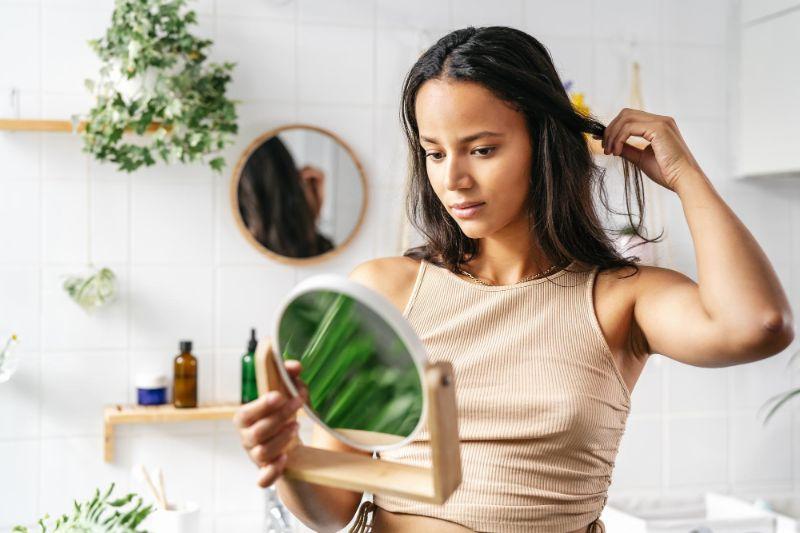In the ever-evolving landscape of hair care, finding the best hair vitamin is an ongoing journey for Canadians aiming to boost hair growth and tackle hair loss. As individuals look for the right balance of nutrients to support their hair health, understanding each vitamin’s role is key. This guide provides valuable insights into hair vitamins, highlighting best practices, emerging trends, and the convenience of online hair loss treatment tailored for Canadian residents.
Unveiling the Power of Hair Vitamins
Achieving and maintaining luscious locks in Canada requires a multifaceted approach, with hair vitamins playing a central role. These essential nutrients not only support hair growth but also enhance overall hair health, making them a vital part of any effective hair care routine for Canadians.
1. Vitamin A: A Cornerstone for Hair Health
Vitamin A takes center stage in promoting healthy hair by facilitating sebum production. Sebum, an oily substance, moisturizes the scalp, preventing dryness and minimizing the risk of hair breakage.
2. B-Vitamins: Nourishing Your Mane
The B-vitamin complex, encompassing Biotin (B7) and Niacin (B3), emerges as a powerhouse in promoting hair growth. Biotin, renowned for enhancing hair strength and texture, stands out as a key player in the pursuit of vibrant tresses.
3. Vitamin C: Crafting Hair Structure with Collagen
Vitamin C contributes to collagen production, a fundamental component of hair structure. This vitamin fortifies hair strands, reducing the likelihood of breakage and promoting overall hair resilience.
4. Vitamin D: Sun-Kissed Scalp for Hair Vitality
Often dubbed the sunshine vitamin, Vitamin D plays a crucial role in preventing hair loss. By ensuring that hair follicles receive ample nutrients, coupled with exposure to sunlight, Vitamin D fosters a healthy scalp environment.
Which Vitamin Grows Hair?
The pursuit of the vitamin that actively stimulates hair growth frequently leads to Biotin. As a water-soluble B vitamin, Biotin contributes significantly to the synthesis of keratin, the protein forming the foundation of hair strands. Adequate Biotin intake is associated with longer, thicker hair. In addition to promoting hair growth, Biotin also helps maintain the overall health of the hair by preventing breakage and brittleness. It is commonly found in foods such as eggs, nuts, and leafy greens, making it easily accessible for a balanced diet.

Best Vitamins for Hair Growth
Unlocking the secrets to optimal hair growth involves a harmonious blend of vitamins. Each vitamin plays a distinct role, contributing to the overall vitality of your hair. Let’s explore the key players in this symphony of growth:
1. Biotin (Vitamin B7)
Celebrated for its ability to enhance hair strength and texture, Biotin is a cornerstone in any hair care routine. It helps to promote healthy hair growth by improving the keratin infrastructure, which is the protein that makes up the hair strands. Additionally, Biotin aids in the production of fatty acids that nourish the scalp and keep it hydrated, creating an optimal environment for hair growth.
2. Vitamin E
Vitamin E steps into the spotlight as a potent antioxidant, safeguarding hair follicles from oxidative stress. This protection contributes to a healthier scalp and fosters an environment conducive to hair growth. In addition, Vitamin E helps to improve blood circulation in the scalp, ensuring that essential nutrients are delivered to the hair follicles. This increased blood flow can also contribute to faster hair growth and stronger, healthier strands.
3. Iron
The role of iron in hair health is undeniable. It facilitates the transport of oxygen to hair follicles, preventing thinning and promoting overall hair vitality. Iron deficiency can lead to hair loss and a decrease in hair quality. Adequate iron levels ensure that the hair follicles receive enough oxygen and nutrients for optimal growth. Additionally, iron helps in the production of hemoglobin, which carries oxygen to the scalp and promotes healthy hair growth.
How to choose the best hair vitamins?
Choosing the best hair vitamins is a strategic way to combat hair loss and maintain the vitality of your hair in Canada. While many supplements are available, it’s important to understand that individual needs can vary. For those dealing with significant hair loss, consulting a dermatologist can help create a personalized treatment plan tailored to your unique hair profile and underlying health conditions. With online hair loss treatment options, accessing professional advice has never been easier.
RemoteDerm, an online dermatologist in Canada, can assist in identifying the right mix of nutrients and vitamins crucial for hair growth. Key factors to consider include biotin for strengthening hair, vitamin E and A for scalp health, and iron for supporting the hair growth cycle. Amino acids and omega-3 fatty acids also play a key role in creating a healthy environment for hair regrowth.

In the selection process, it is essential to diligently analyze each hair vitamin option, considering both oral and topical forms, and validate their effectiveness with scientific backing. Pursue high-quality, certified vitamins devoid of extraneous substances. Although these nutrients can bolster hair maintenance and improvement, their benefits are amplified when integrated into a regimen of balanced nutrition and overall wellness. Consulting with an online dermatologist can refine and affirm your decision, aligning your strategy whether you choose oral or topical applications, to effectively address hair loss.
Final Thoughts
In our exploration of hair vitamins, it’s clear that there is no one-size-fits-all solution for achieving optimal hair health. The key lies in a balanced combination of vitamins, each playing a unique role in improving and maintaining hair vitality. From Vitamin A, which supports sebum production, to Biotin, which enhances keratin synthesis, every vitamin contributes to the complex process of hair care.
For Canadians seeking a tailored approach, consulting a dermatologist—especially through the convenience of online dermatology—can provide personalized guidance. This is especially important for those dealing with hair loss or scalp issues. With digital access to professional expertise, you can take the first step towards healthier, stronger hair. By combining expert advice, research-backed information, and a healthy lifestyle, you can choose the best hair vitamins suited to your needs and achieve a vibrant, healthy mane.
FAQs
What vitamins are best for hair growth?
Biotin, Vitamin E, Vitamin A, and Iron are among the best vitamins for hair growth. These essential nutrients support hair health by nourishing the scalp, enhancing keratin production, and promoting strong, healthy strands.
Can vitamins help with hair loss?
Yes, certain vitamins, like Biotin and Vitamin D, can help combat hair loss by improving scalp health and supporting hair follicles. A well-balanced diet with these vitamins can strengthen hair and reduce thinning.
How long does it take for hair vitamins to show results?
Results vary depending on the individual, but typically it takes about 3 to 6 months of consistent vitamin intake to notice significant improvements in hair growth and health. Patience and consistency are key.
Should I use oral or topical hair vitamins?
Both oral and topical hair vitamins can be effective; however, oral supplements work systemically to address internal imbalances, while topical treatments can directly nourish the scalp. A combination of both may offer the best results for hair health.
